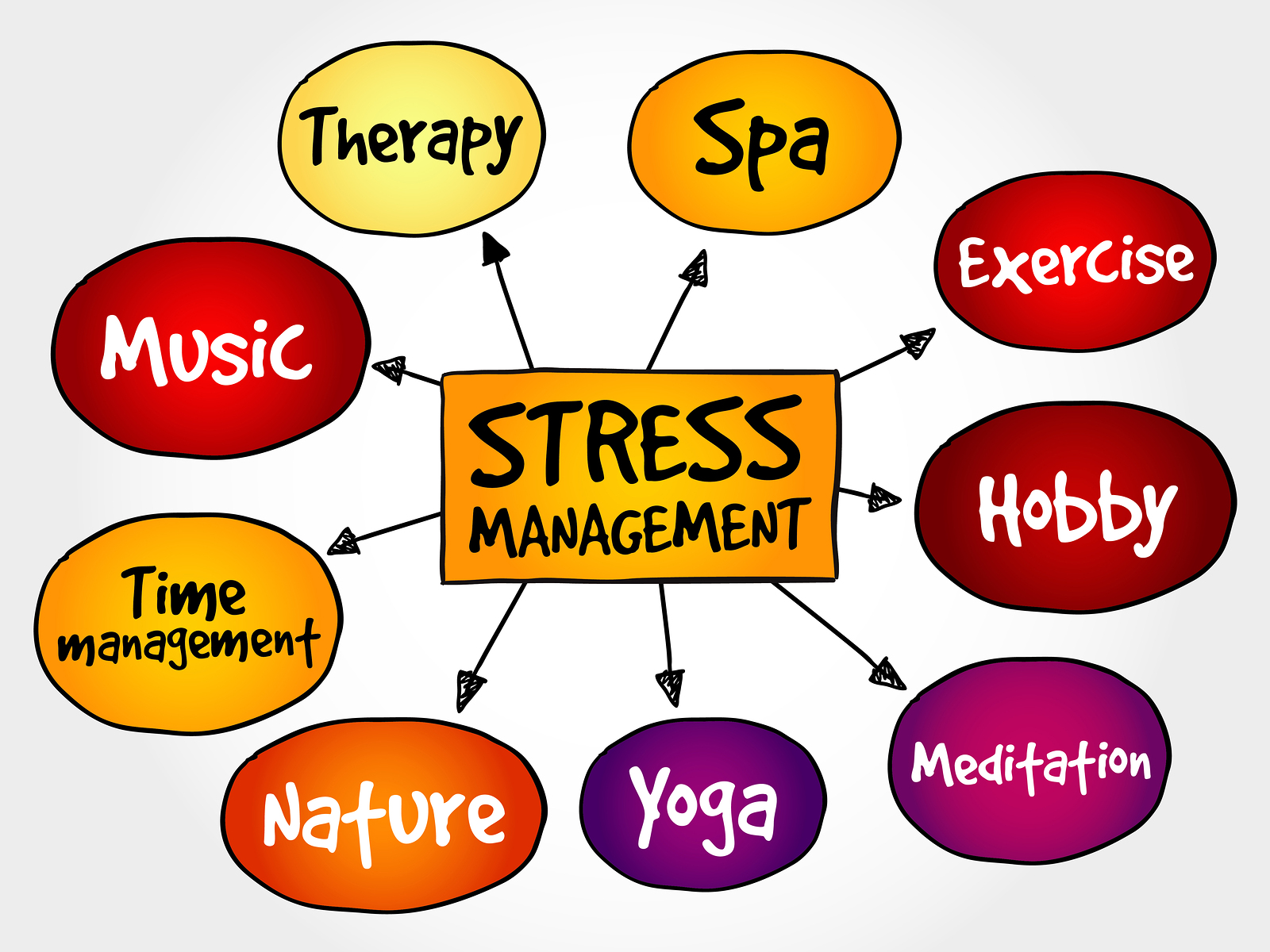
Stress is terrible, and stress reduction should be among your top priorities, as the benefits you’ll reap from a de-stressed life are immense and profound. Read on as we discuss ways to deal with stress and its benefits!
What is Stress?
Our body has an autonomous system that gets triggered every time it senses a threat or danger. This is called the “fight or flight response” or “stress response." It is necessary for survival. In simpler terms, stress is the body’s way of responding to any kind of change (or threat).

Benefits of Managing Stress
- Good comprehensive health: Since less stress means a healthier immune system, managing stress improves a person's physical and mental health.
- Less absenteeism at work: Excessive stress is one of the leading causes of absenteeism at work. Stress reduction helps to reduce the number of “sick days” one has to take.
- Reduced physical discomforts: Stress not only weakens the immune system but also leads to a number of unexplained aches and strains in the body, which disappear if the stress is managed well.
- Better appetite and digestion: Poor appetite, a side effect of stress, is no longer a problem if stress is reduced.
- Improved sleep quality: Insomnia (lack of sleep) or hypersomnia (excessive sleep) are treated automatically if the stress is reduced or worked upon.
- Calmer Mood: Less stress means a more relaxed and peaceful state of mind.
- Improved response time and reflexes: Better sleep and a healthy mind generally improve the body’s impulses.
- More positive feelings: A good mood and a happy mind always bring positivity.
- Reduced reliance upon drugs: Better immune system, good health, and, thus, less requirement for medicines.
- Better control over mood
- Greater self-awareness and self-actualization
How to Deal with Stress Positively?
We all know that “Prevention Is Better Than Cure”. Why let the stress take a toll on our health and relationships when just a few simple changes in lifestyle can help us take care of all this agony?
- Regular exercise: It's very important for the release of serotonin (happy hormones), which helps fight stress and anxiety. Also, avoid sitting for long hours and an overall sedentary lifestyle. Move your body frequently!
- Nutrition: Good food (balanced diet) means a healthy body to fight and a healthy immune system
- Sleep: One of the important ingredients for a healthy mind and body.
- Water: At least 2-3 litres of water in a day helps all the cells in the body to be fully charged and function well. An active body means an active mind as well.

Add these Habits to your Work Routine for Better Stress Management!
- Time management: Following a timetable is something that has been taught to us since schooling. Why? Because keeping a tab on time throughout the day helps us work more efficiently without wasting any time
- Planning: Planning ahead aids in speeding up our tasks without wasting any time thinking “What to do next?”
- Prioritizing: It is very important to prioritize your tasks instead of just randomly doing everything. Always finish the most important task(s) first before moving on to another.
- To-do list: It is so de-stressing to tick mark those little square boxes in the to-do checklists. Also, making a list will not let you forget any important chore.
- Delegate more often: Assign as much work as possible to divide your burden and do “intelligent work” rather than “donkey work.”

Some Self-Help Tips that’ll Help in either Avoiding or Managing Stress
- Relaxation and meditative practices: Yoga, pranayama (breathing exercises) and other meditative practices help improve memory and concentration and also reduce stress by relaxing the mind.
- Me-time: The most important thing in the world! Always take out at least a few minutes for yourself in the day when you can do anything “YOU” want to do.
- Avoid conflicts: Better be away from situations that make you feel stressed out, such as unnecessary arguments and conflicts.
- Avoid negativity: Avoid people and situations that bring negativity into your mind.
- Vent out: Don’t keep all your feelings to yourself. Find a friend or family member with whom you can share. “A problem shared is a problem halved.”
- Smile: “Laughter is the best medicine.” Smile a lot. You will make someone else’s day happy along with yours.
Like everyone has their own stressors, everyone has their own de-stressors too. You can find a new hobby, learn a new skill, or maybe brush up on your old ones!
If you’re not able to help yourself, then never hesitate to go for therapy.
Stress Management Therapy pursues one or more of these Approaches
- A Psychotherapist will help you understand your stressors (triggers) and will guide you to work on it.
- A Hypnotherapist will help you learn various meditative techniques like progressive muscle relaxation and self-hypnosis.
- Personality development courses help you to become an efficient worker.
- Individual and group therapy sessions aid in venting out and increase confidence.

Living with it
Stress is inevitable and omnipresent. You can never escape it entirely. Thus, you need to learn to deal with stress so that it does not succeed in ruining your personality, health, and relationships.
To effectively deal with stress, you can practice the 4 A’s – Avoid, Alter, Adapt, and Accept
AVOID
- Unnecessary stress & people who stress you out
- Anxiety-inducing events and situations
- Being rigid
- Trying to take control of your environment
- Impractical expectations
ALTER the situation
- Express your feelings
- Be willing to compromise
- Learn time management
- Have confidence in yourself and your abilities

ADAPT to the stressor
- Reframe the problem
- Look at the big picture
- Adjust to the environment and situations
- Revise your standards and expectations

ACCEPT the things you can’t change
- Love and respect people “as they are”
- Don’t try to control the uncontrollable
- Look for the upside
- Learn to forgive
- Practice gratitude

So, avoid what you can alter the situation when you can’t, adapt as much as possible, and accept what’s beyond your control. Choose positively and intelligently and lead a happy and stress-free life!


.png)


